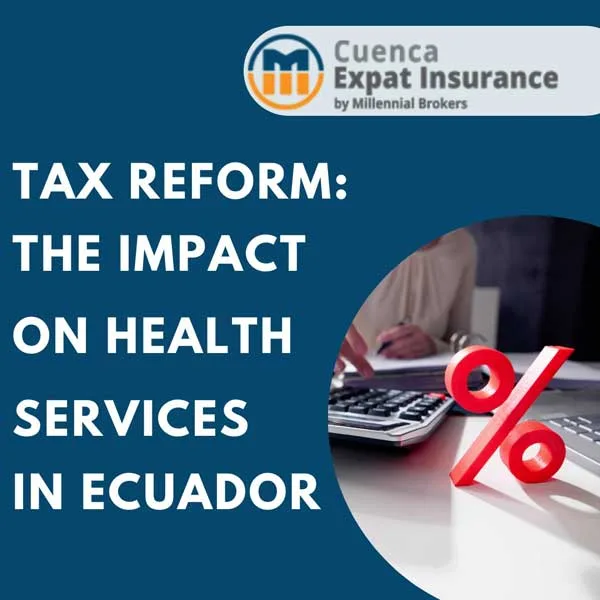To rebuild U.S. trust in Latin America, Biden should start by revising terms of Trump loan to Ecuador
By Kevin P. Gallagher and Jorge Heine
One of the most bipartisan acts during the Trump administration was passage of the Better Utilization of Investments Leading to Development Act (BUILD Act) of 2018, establishing the United States International Development Finance Corporation (DFC). The DFC is “America’s development bank. DFC partners with the private sector to finance solutions to the most critical challenges facing the developing world today.” On condition that the institution be aligned with climate change, transparency and development goals the DFC was broadly endorsed by Democrats and development experts.
DFC is “America’s development bank. DFC partners with the private sector to finance solutions to the most critical challenges facing the developing world today.” On condition that the institution be aligned with climate change, transparency and development goals the DFC was broadly endorsed by Democrats and development experts.

U.S. President Joe Biden
The economies of Latin America contracted by 7.7 percent in 2020, the largest contraction on earth in the COVID-19 era and the largest in the region in 120 years. The region has experienced half a million deaths from the COVID-19 pandemic, also the most in the world and has slowest growth projected for 2021. Ecuador is among the hardest hit in the entire region. With the private sector reluctant to move in such an environment, development finance can be a key catalyst for recovery.
Thus, many were intrigued to learn that the DFC — just days before Trump would leave office and weeks before elections in Ecuador — was providing a $3.5 billion loan to Ecuador. However, as the details have unfolded it is clear that the news was too good to be true. It has been revealed that the deal forces Ecuador to privatize oil and infrastructure assets and to ban Chinese technology into the country.
As we came to expect from the Trump administration, the DFC move was bad development policy, bad Latin America policy and bad China policy. Luckily it can be reversed by the Biden administration as he seeks to repair America’s world standing and vision for global prosperity.
In 2008 Ecuador partially defaulted on its international loan commitments. The country’s credit rating was downgraded, largely shutting the country off capital markets. Ecuador didn’t want to go to the International Monetary Fund (IMF), which requires austerity measures that have proven to worsen economic and social conditions.
Ecuador turned to China. Chinese development banks provided the Ecuadorian government billions of dollars in financing without the hard conditionalities of the IMF. Where Venezuela squandered Chinese finance, Ecuador chose to invest in infrastructure. Indeed, through 2013 Ecuador had the highest investment rates in Latin America despite being shut out of Western capital markets. This investment, and the economic growth and poverty reduction that came with it, led the credit rating agency Moody’s to upgrade Ecuadorian credit and return the country to capital markets. Ecuadorians remember this.
The downward turn in global oil markets, which Ecuador is far too dependent on, and economic mismanagement put the country back in economic doldrums in 2018. That time the country chose to go to the IMF for support. In 2019 the IMF supported a major austerity package led to massive riots. Ecuadorian President Lenín Moren’s popularity ratings went to single digits — the worst in the region. Not surprisingly, COVID-19 wracked Ecuador, with the world watching bodies pile up on streets. Ecuador defaulted on its private debt once again, restructuring and securing yet another loan package from the IMF in 2020. Ecuadorians remember this.
Ecuador’s China loans have problems. Chinese finance furthers Ecuador’s path dependence in oil and extractive development. The majority of the financing went to oil exploration and hydroelectric power plants and is on more expensive terms than what Western-development finance institutions can provide. Oil has been the country’s blessing but also its curse; high prices have made the rest of Ecuador’s goods too expensive and have this hollowed out more productive and employment intensive activity. Low prices diminish one of the country’s only lifelines for foreign exchange. Some of the China deals also link payments to further oil sales.
Hydropower can be a relatively cleaner form of energy and can expand energy access to the poor. But in Ecuador’s case, both the oil concessions and hydro dams are often in the dense Amazon rainforest and pose major risks to Indigenous peoples and become major contributors of carbon dioxide emissions due to associated deforestation. As more and more countries are pledging to decarbonize their economies by 2050, Ecuador has to get out of the oil business, quick.
This is a clear opening for the U.S. to lead by example. A DFC committed to development, climate-friendly development, transparency and engaging with local stakeholders with better prices will get many customers. Yet, the DFC deal curtails state capacity while generating windfall profits for U.S. fossil fuel interests. What’s more, the move would further lock the country into fossil fuel and extractive production and would ban the country from accessing cutting edge technologies. Adam Boehler, the chief executive of the DFC says the bank should confront Chinese “neo-colonialism” and this deal is a “novel model” to eject China from Latin America.
Luckily, there wasn’t enough time to fully solidify the deal before Trump was ejected from office. The deal is a framework and “may be modified in writing as determined jointly” by the two countries. President Biden has already committed to repair America’s standing across the world by leading by example through the creation of a job-intensive transition to a clean economy and by projecting that example across U.S. foreign policy.
Reworking the Ecuador deal in that image is good development policy and good foreign policy that won’t be forgotten in Ecuador. It is also a better way to compete with China.
___________________
Kevin P. Gallagher is director of the Global Development Policy Center at the Pardee School of Global Studies at Boston University. Jorge Heine is a professor at the Pardee School and former Chilean ambassador to China.


















